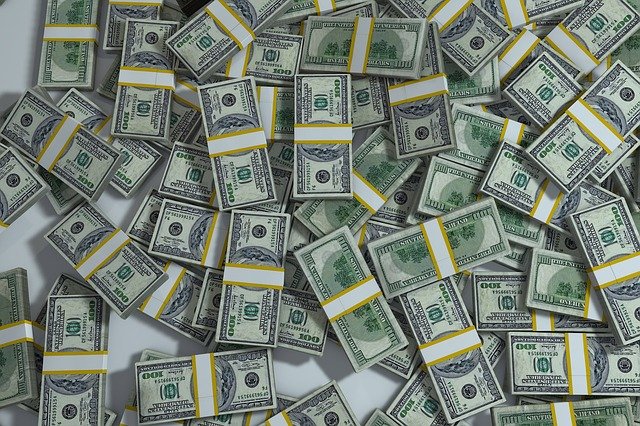- Summary
- Companies
- Putin warns of retaliation if West interferes
- Ukraine says Europe should stop depending on Russia
- France to host EU energy ministers on May 2
- Russia denies energy blackmail
- Canada says Russian attacks are war crimes

WARSAW/SOFIA/KYIV, April 28 (Reuters) – Russian President Vladimir Putin warned of lightning-fast retaliation if countries interfere in Ukraine as European leaders accused Russia of “blackmail” over its cuts to gas supplies.
Russia has told the United States to stop sending arms to Ukraine, saying large Western deliveries of weapons were inflaming the conflict.
Addressing lawmakers in St Petersburg on Wednesday, Putin said the West wanted to cut Russia up into different pieces and accused it of pushing Ukraine into conflict with Russia.
Register
“If someone intends to intervene in the ongoing events from the outside, and create strategic threats for Russia that are unacceptable to us, they should know that our retaliatory strikes will be lightning-fast,” said Putin, according to video of his address supplied by Russian media.
“We have all the tools for this, things no one else can boast of having now. And we will not boast, we will use them if necessary. And I want everyone to know that.”
Russia’s invasion of Ukraine began on Feb. 24 and has reduced towns and cities to rubble and forced more than 5 million people to flee abroad. Western countries have responded with sanctions and weapons for Ukraine to fight a war that has brought fears of wider conflict in the West, unthought-of of for decades.
Russia calls its intervention a “special operation” to disarm Ukraine and protect it from fascists. Ukraine and the West says this a false pretext for an unprovoked war of aggression by President Vladimir Putin.
While Russia presses its military assault in eastern and southern Ukraine, its economic battle with the West threatens gas supplies to Europe and is battering the Russian economy as it struggles with the worst crisis since the 1991 fall of the Soviet Union.
Ukraine said Europe should stop depending on Russia for trade after it halted gas supplies to Bulgaria and Poland for not paying in roubles.
“The sooner everyone in Europe recognises that they cannot depend on Russia for trade, the sooner it will be possible to guarantee stability in European markets,” Ukrainian President Volodymyr Zelenskiy said late on Wednesday.
Germany, the biggest buyer of Russian energy, hopes to stop importing Russian oil within days but warned that a Russian energy embargo or blockade would tip Europe’s largest economy into recession. read more
Gazprom (GAZP.MM), Russia’s gas export monopoly, suspended gas supplies to Bulgaria and Poland on Wednesday for not paying in roubles, as stipulated in a decree from Putin that aims to soften the impact of sanctions.
While the president of the European Commission said Gazprom’s suspension was “yet another attempt by Russia to use gas as an instrument of blackmail”, EU member state ambassadors asked for clearer guidance on whether sending euros breached sanctions.
France will host a meeting of EU energy ministers on May 2.
Kremlin spokesperson Dmitry Peskov said Russia remained a reliable energy supplier and denied it was engaging in blackmail.
He declined to say how many countries had agreed to pay for gas in roubles but other European customers said gas supplies were flowing normally.
Sanctions are taking a heavy toll on Russia, with its economy ministry indicating in a document the economy could shrink by as much as 12.4% this year. read more
Canadian lawmakers voted unanimously on Wednesday to call Russia’s attacks in Ukraine a “genocide”, with members of parliament saying there was “ample evidence of systemic and massive war crimes against humanity” being committed by Russia.
Canada’s parliament said in a motion war crimes by Russia included mass atrocities, wilful killing of civilians, the desecration of corpses, forcible transfer of children, torture, physical and mental harm, and rape. read more
Russia denies targeting civilians.
Since the Russian invasion force was driven back at the outskirts of Kyiv last month, Moscow has refocused its operation on eastern Ukraine, starting a new offensive to fully capture two provinces known as the Donbas.
Ukraine said Russian forces had used tear gas and stun grenades to disperse a pro-Ukraine rally in Kherson, the first big city it has seized. A series of powerful explosions caused by rockets hit Kherson late on Wednesday, Ria News agency reported. read more
Blasts were heard earlier in three Russian provinces bordering Ukraine, authorities said, and an ammunition depot in the Belgorod province caught fire. read more
Kyiv has not confirmed responsibility for these and other incidents but has described them as payback. “Karma is a cruel thing,” presidential adviser Mikhaylo Podolyak wrote on social media.
An aide to the mayor of the ruined port city of Mariupol said Russian forces had renewed their attacks on the Azovstal steel plant, where fighters and some civilians remain holed up.
Concern has also increased over the prospect of the conflict widening to neighbouring Moldova, where pro-Russian separatists have blamed Ukraine for reported attacks this week in their region, occupied since the 1990s by Russian troops.
Register
Additional reporting by Reuters journalists; Writing by Michael Perry; Editing by Robert Birsel
Our Standards: The Thomson Reuters Trust Principles.